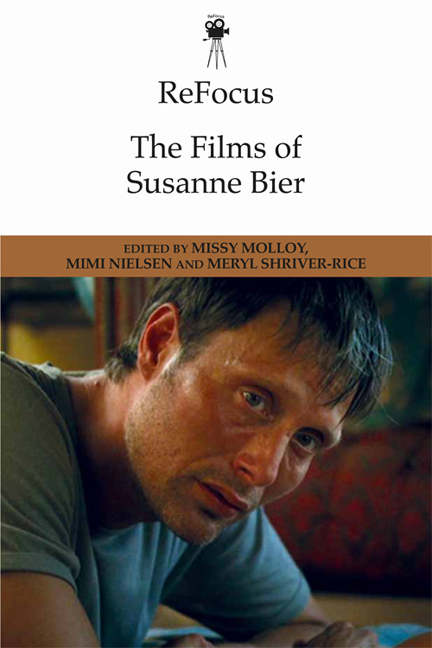Book contents
- Frontmatter
- Contents
- List of Figures
- Notes on Contributors
- Foreword
- Introduction: Susanne Bier's Boundary-Crossing Screen Authorship
- Part 1 Generic and Industrial Fluidity
- Part 2 Negotiating Identity
- Part 3 Authorship and Aesthetics
- Part 4 Transnational Reach
- Postscript: A Conversation with Susanne Bier
- Filmography of Susanne Bier
- Acknowledgments
- Index
Introduction: Susanne Bier's Boundary-Crossing Screen Authorship
Published online by Cambridge University Press: 01 May 2021
- Frontmatter
- Contents
- List of Figures
- Notes on Contributors
- Foreword
- Introduction: Susanne Bier's Boundary-Crossing Screen Authorship
- Part 1 Generic and Industrial Fluidity
- Part 2 Negotiating Identity
- Part 3 Authorship and Aesthetics
- Part 4 Transnational Reach
- Postscript: A Conversation with Susanne Bier
- Filmography of Susanne Bier
- Acknowledgments
- Index
Summary
The renaissance in Danish film during the last two and a half decades, which film scholars have dubbed the “New Danish Cinema,” has produced compelling works with local and transnational appeal (Hjort 2005; Shriver-Rice 2015). Susanne Bier has been at the forefront of New Danish Cinema's international visibility since The One and Only (Den eneste ene, 1999) broke Danish box-office records and inspired an English-language remake (The One and Only, 2002). Despite critical accolades, including In a Better World's (Hævnen, 2010) Academy Award for Best Foreign Language Film and significant attention from the popular press and international audiences, Bier's work has not often been the subject of scholarly discourse. In this volume we illustrate the ways in which Bier is a generically and industrially mobile screen author, one whose work has long been overlooked by film scholarship perhaps because it eludes easy classification (Smaill 2014). ReFocus: The Films of Susanne Bier makes significant headway toward advancing the international scholarly conversation on Bier's oeuvre and contributes to the broader conversation regarding women filmmakers currently forging viable commercial and artistic careers in a field historically dominated by men (see White 2015). It also addresses the phenomenon of directors from small nations successfully navigating competitive production contexts in an increasing global “age of media convergence” (see Hjort and Petrie 2007; Jenkins 2006).
This collection is motivated in part by the desire to parse Bier's body of work because it challenges dominant rubrics of film studies assessment, namely those fundamental to genre- and auteur-based criticism, as well as newer cinematic theories based on contemporary media's transnational dimensions. The fact that Bier, as a noted filmmaker from a small nation who is also part of a minority of globally visible female directors, could evade the attention of film scholars for a relatively long period despite her remarkable artistic and commercial achievements became for us, the editors of this volume, an irresistible enigma. What is it about Bier's work that inspires extraordinary public interest yet fails, barring a few exceptions, to stimulate scholarly criticism? Do standard approaches to film authorship sidestep idiosyncratic works and/or directors that threaten entrenched systems of determining cinematic value? These questions ground the many queries percolating through this volume.
- Type
- Chapter
- Information
- ReFocus: The Films of Susanne Bier , pp. 1 - 12Publisher: Edinburgh University PressPrint publication year: 2018



